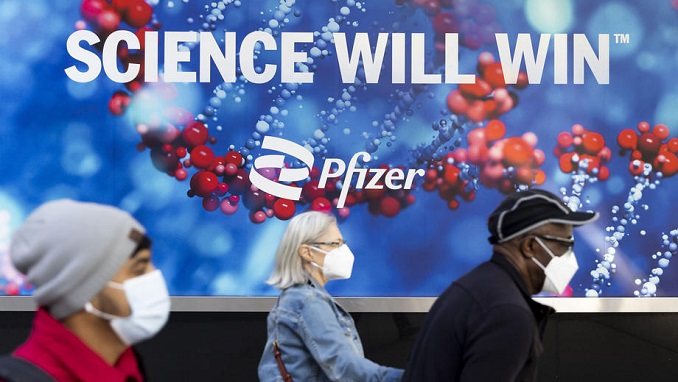Even though the United States is still grappling with COVID infections that kill hundreds of Americans a day, President Joe Biden declared the coronavirus pandemic “over” in a 60 Minutes interview on Sunday.
“We still have a problem with COVID. We’re still doing a lotta work on it. It’s – but the pandemic is over,” said President Biden.
“If you notice, no one’s wearing masks. Everybody seems to be in pretty good shape,” President Biden continued, pointing to the return of large events and the nationwide lack of other public health measures.
Per the Centers for Disease Control and Prevention (CDC) COVID Data Tracker, as of September 16, there were 95,412,766 registered COVID infections with a downward daily average of around 61,000 and a daily average of 391 deaths, which also shows a downward trend.
“Globally, the number of new weekly cases decreased by 28% during the week of 5 to September 11, 2022,” the World Health Organization (WHO) said last week. “The number of new weekly deaths decreased by 22%” compared to the previous week.”
But is the pandemic over, really?
Pointing out that weekly deaths were at the lowest level since March 2020, WHO Director-General Tedros Adhanom Ghebreyesus expressed a similar opinion last week, noting that “we have never been in a better position to end the pandemic.”
However, he also pointed out that “now is the worst time to stop running” since “there is still a risk of more variants, deaths, disruption, and uncertainty.”
Cautioning that the virus “is still intensely circulating around the world,” WHO’s technical lead on COVID, Maria Van Kerkhove, emphasized that “far more cases are actually circulating than are being reported to us,” warning the falling number of reported cases is deceptive since many countries have cut back on testing and may not be detecting the less serious cases.
She added the agency expects “there are going to be future waves of infection, potentially at different time points throughout the world caused by different subvariants of Omicron or even different variants of concern.”
Ghebreyesus said that the WHO – which still categorizes COVID-19 as a pandemic – is “releasing six short policy briefs that outline the key actions that all governments must take now to finish the race.” The documents include guidance on:
- COVID-19 testing
- Clinical management of COVID-19
- Reaching COVID-19 vaccination targets
- Maintaining infection prevention and control measures for COVID-19 in healthcare facilities and
- Building trust through risk communication and community engagement
Vaccine hesitation remains a challenge
COVID-19 can become manageable with significantly reduced morbidity and mortality “with access to and appropriate use of existing life-saving tools,” as one of the papers says. However, in reality, there’s still widespread vaccine hesitancy, especially when it comes to the youngest population, The Washington Post reports.
Even though doctors and public health experts have expected apprehension among parents, they never expected there would be this little interest in vaccines for young children, the Washington Post points out.
Citing the CDC data, the newspaper says “just under 325,000 young children are fully vaccinated nationwide” despite the fact that “from March 2020 to June 2022, 1.9 million children ages 1 to 4 tested positive for the coronavirus and 202 died.”
Even in Washington DC, which has the highest percentage of vaccinated individuals in the U.S., “barely 21 percent of children 6 months to 4 years old have received one shot, and just 7.5 percent have received both doses.” The rates are even more disappointing in Alabama, Louisiana, and Mississippi, which occupy the bottom of the list – less than 0.2%.
The gravity of the situation with the “anti-vaxxer attitude” of some Americans is increased by the risk of “non-COVID virus outbreaks,” Director of the National Institute of Allergy and Infectious Diseases Dr. Anthony Fauci pointed out. For example, we’re seeing a resurgence of childhood diseases such as the cases of polio, which Bio.News previously covered, and measles in the U.S.
“The acceleration of an anti-vaxxer attitude. . . might spill over into that kind of a negative attitude towards childhood vaccinations. If you fall back on vaccines against common vaccine-preventable childhood diseases, that’s where you wind up getting avoidable and unnecessary outbreaks,” Dr. Fauci told The Financial Times in an interview published Sunday.




